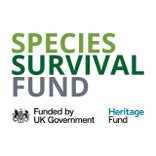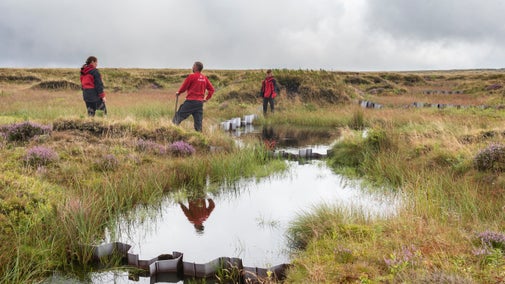
Explore the natural world
From learning how to identify trees to discovering the underwater world of rockpools, pick up some top tips to help you get closer to nature.

The Freshwater Community Grant Fund supports initiatives to restore freshwater habitats and benefit communities at five locations in England. In partnership with Defra's Species Survival Fund, the scheme aims to award a total of £75,000 to local initiatives.
The application window for funding is now open. Community groups are invited to suggest projects that have two aims: to boost biodiversity and create opportunities for people to connect with nature at freshwater sites. We hope the work will have a cascading impact on wider ecosystems. We also want to build skills within communities, so they can look after these special habitats and species long term.
The Freshwater Community Grant Fund is available for community organisations within a 20-mile radius of:
Grants of £500 to £5,000 are available for initiatives that create, look after or improve local freshwater habitats and provide opportunities for people to connect with nature.
Projects must be completed by 31 December 2025.

The Freshwater Community Grant Fund particularly welcomes applications from organisations who seek to deliver activities with, and for, people who are under-represented in conservation, for example:
The following groups are eligible to apply:
The application process will be the same for all applications and will be done via the submission of a completed application form. Representatives of our staff and invited external panellists will assess applications on a rolling basis.
The application window will remain open until all funds have been allocated, or until the end of the funding window on 31 December 2025.
Community groups can apply for costs relating to anything in the list below.
The community grant fund is unable to support the day-to-day running costs of an organisation or group.
The grant will be awarded on the basis that it will not give the recipient an economic advantage ('profit'). If this is likely to be the case, you'll be asked to confirm that the award will not mean you've received more than £325,000 of aid qualifying as ‘Minimal Financial Assistance’ over a period covering the current and past two financial years.
Find out more about the Freshwater Community Grant Fund, including what the grant does not cover.

The grants are part of the Freshwater Renaissance Programme, which sits at the heart of our vision for the future of freshwater.
It's a two-year, multi-catchment programme of work aiming to restore a functioning network of biodiverse and climate-resilient freshwater habitats.
The work will focus on small and undervalued headwater streams, ponds, flushes and ditches. Much of the work will be low-tech, low-cost and low-maintenance – for example installing leaky dams to slow the flow of water and creating ponds and scrapes. The restored freshwater habitats will support many species from eels to brown trout, curlews to kingfishers, dragonflies to lizards and newts to otters.
Freshwater Renaissance will also offer a series of activities and events for community groups. Many will include children and young people, inspiring the next generation to love our rivers.
Volunteering opportunities will be available for local communities too, so they can get involved with practical action, citizen science and monitoring. These activities will lay the groundwork for the future care of the habitats and species at the places we look after.
Overall, the programme will allow a wider range of people to engage with, feel connected to and take action for nature, in particular our freshwater habitats and species.
It is part of our ongoing Riverlands programme.
The Freshwater Renaissance Programme is funded by the Government's Species Survival Fund. The fund was developed by Defra and its arm's-length bodies. It's being delivered by The National Lottery Heritage Fund in partnership with Natural England and the Environment Agency.

From learning how to identify trees to discovering the underwater world of rockpools, pick up some top tips to help you get closer to nature.

A short-term programme to create and restore habitats and reverse the decline of species across England, delivered on behalf of Defra.

Find out how we're helping to ensure that these endearing animals continue to be a feature of Britain's rivers and lakes for generations to come.

Otters were on the brink of extinction in the UK in the 1960s, but a nationwide conservation effort has seen their numbers bounce back. Find out what our rangers and volunteers are doing to help.

From tips on saving water to combatting plastic pollution, learn more about our work to protect precious coasts and rivers for wildlife and people, and what you can do to help.

Together, we're securing our future with action on climate and the environment. Learn more about how we're responding to the changing climate at places in our care.

Discover how we’re helping increase butterfly populations through habitat management and monitoring, and learn about the rare species we’re bringing back from the brink.

Climate change is the single biggest threat to the places we care for. Take a look at our environmental pledges as we adapt, reduce carbon emissions and address the damage already done.